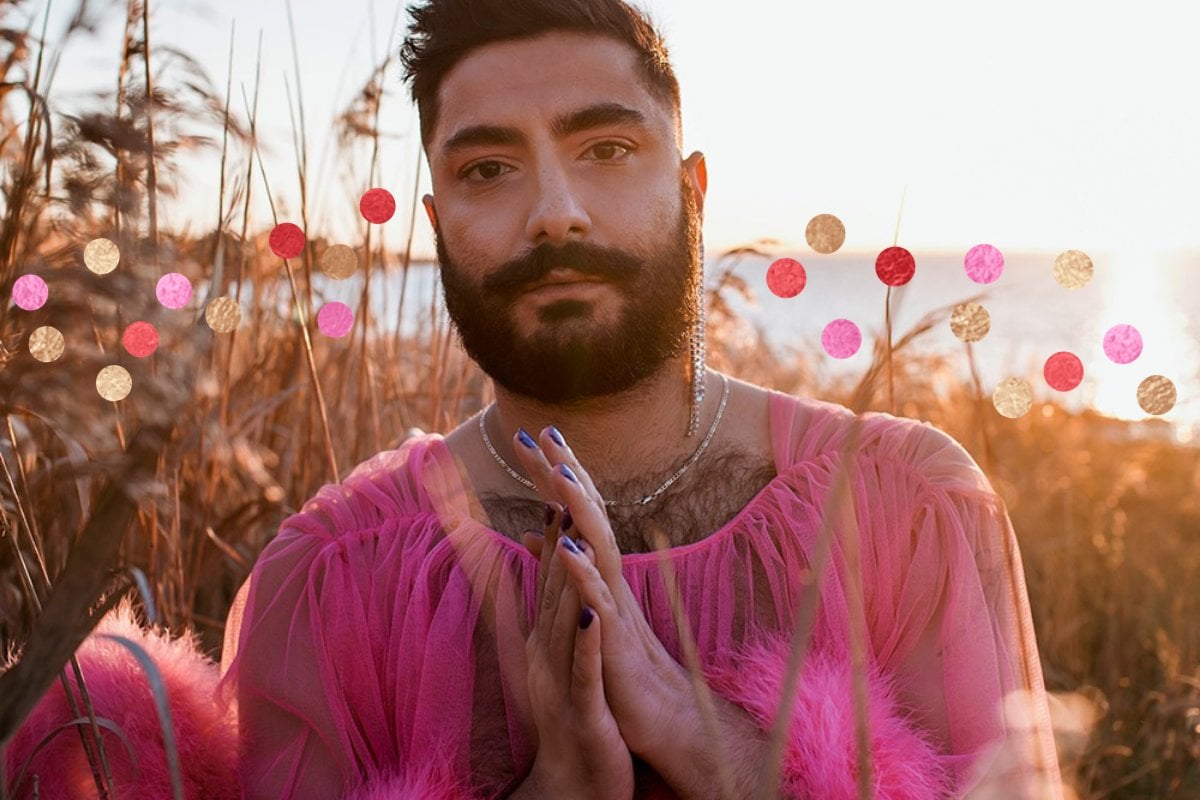
Hello darlings,
My name is Deni, I’m 32 and I identify as non-binary and gay. When Mamamia asked me to write this article for their audience I jumped at the chance. Raising awareness and shining a light to the non-binary experience is a passion of mine, however doing so for you, my darling reader – is particularly special.
Most of you reading this will identify as cis-gendered women and it is you who have been my greatest allies. You have cheered me along every step of my gay existence and as I begin to enter my second year proudly identifying as non-binary, it is you I want to take along for the ride.
Watch: Dating as a trans woman. Post continues below.
You are raising the next generation of humans and with self-education and awareness comes new levels of empathy, understanding and compassion. An understanding that it is time to defy gender-norms and raise a generation of forward-thinking, inclusive humans. This article will merely skim the surface of what being an ally to my community encompasses, but it’s a great place to start.

Top Comments